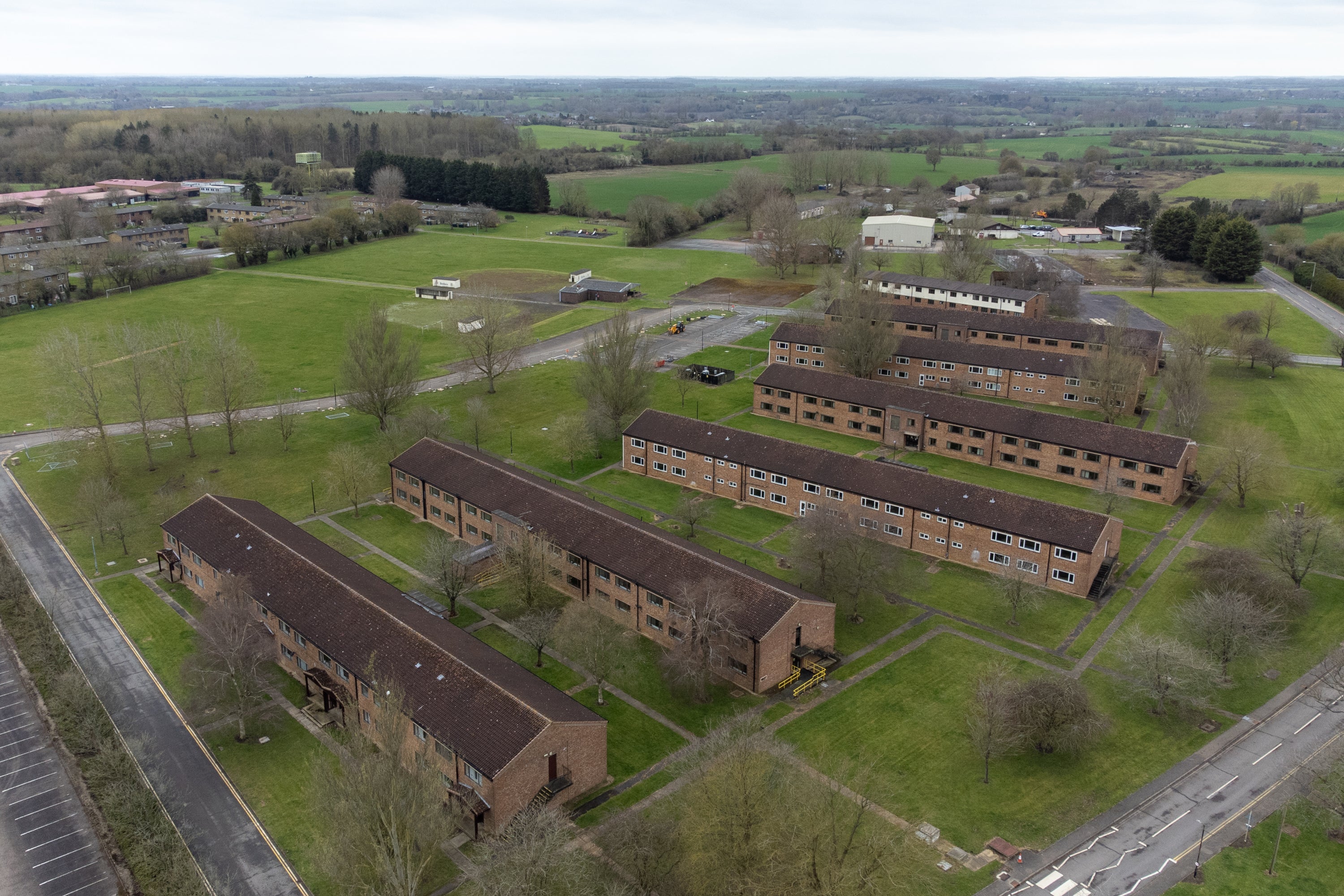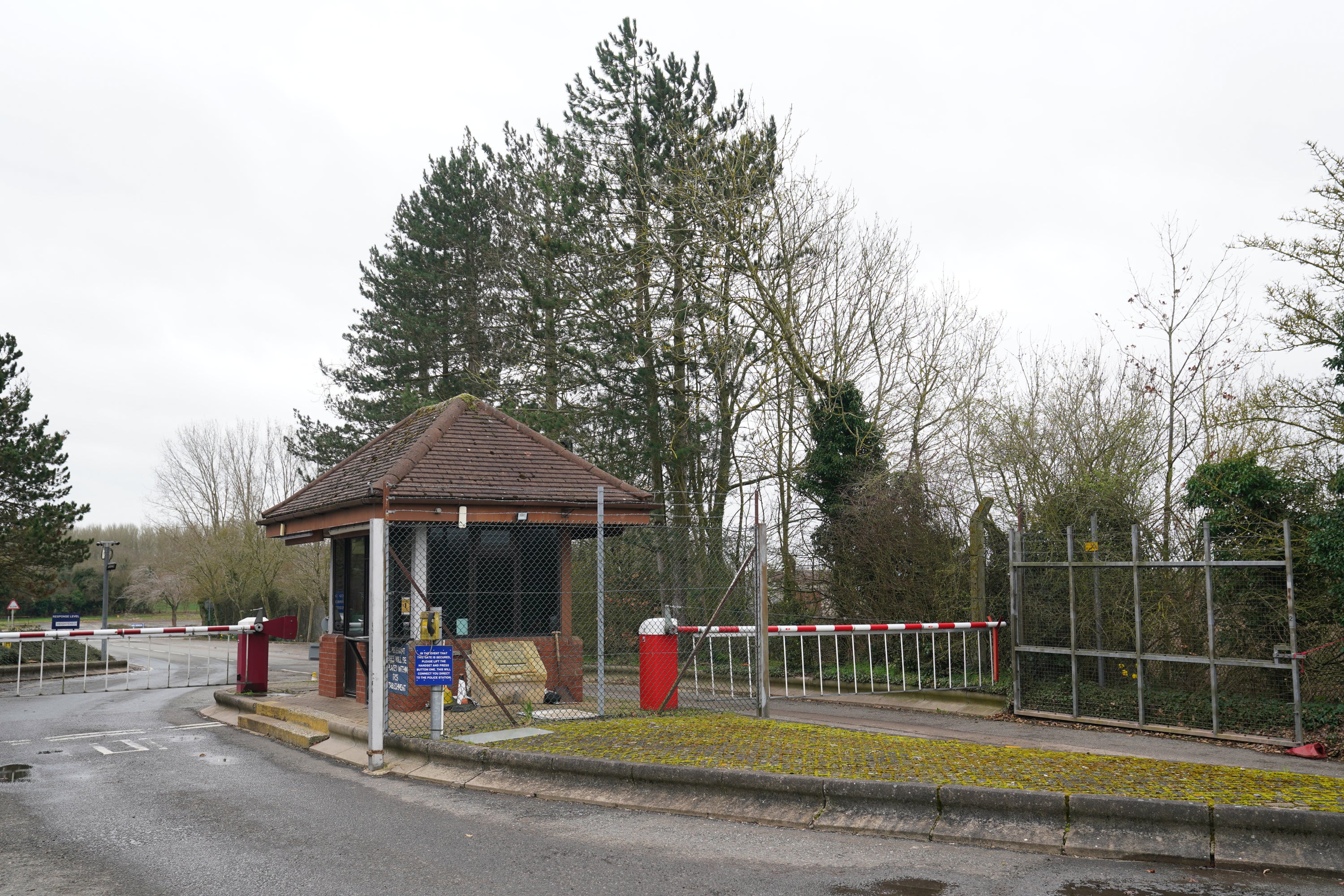Victims of trafficking and torture were unlawfully housed in Essex asylum site RAF Wethersfield, court hears
Home Office is failing to properly screen vulnerable migrants before sending them to RAF Wethersfield, lawyers say
Your support helps us to tell the story
From reproductive rights to climate change to Big Tech, The Independent is on the ground when the story is developing. Whether it's investigating the financials of Elon Musk's pro-Trump PAC or producing our latest documentary, 'The A Word', which shines a light on the American women fighting for reproductive rights, we know how important it is to parse out the facts from the messaging.
At such a critical moment in US history, we need reporters on the ground. Your donation allows us to keep sending journalists to speak to both sides of the story.
The Independent is trusted by Americans across the entire political spectrum. And unlike many other quality news outlets, we choose not to lock Americans out of our reporting and analysis with paywalls. We believe quality journalism should be available to everyone, paid for by those who can afford it.
Your support makes all the difference.Vulnerable asylum seekers, including victims of trafficking and torture, have been unlawfully housed in a “prison-like” former RAF base in Essex, lawyers have argued at the High Court.
Four migrants who were housed in the government’s flagship asylum site RAF Wethersfield have taken the government to court over the accommodation, arguing that the state is failing to screen people properly before they are moved to the Essex base.
Three of the four migrants were victims of trafficking and, despite repeatedly telling officials about their previous torture and trauma, were not moved out of the site until many months later, the court heard. The four claimants were housed at Wethersfield for varying periods between July 2023 and March 2024.
Outbursts of violence are common at the site due to overcrowding and long queues for food and for seats on the bus leaving the base, the High Court heard.

Lawyers for the asylum seekers argued that the Home Office is failing to screen migrants properly for vulnerabilities before moving them to RAF Wethersfield in Essex. The government has accepted that the remote former airbase, which can house up to 580 migrants, is not acceptable accommodation for people who are mentally unwell, and who are victims of torture or trafficking.
Despite this, over 100 vulnerable people have had to be moved out after authorities admitted they shouldn’t have been housed there in the first place.
One of the asylum seekers was tortured and trafficked in Libya and has now developed PTSD and depression, which worsened while he was housed at Wethersfield, the court heard. The Home Office has accepted that the asylum seeker should not have been held at the former RAF base because of this.
One of the other claimants experienced forced labour in Turkey, the court heard. Despite the asylum seekers repeatedly telling staff on site that their mental health was deteriorating, no review was triggered to assess whether it was right to house them at Wethersfield, it was said.
Read: Life inside Essex’s asylum site Wethersfield
Lawyers also told the court that outbursts of violence are frequent in queues to collect food and essential items and to get a seat on the bus to leave the site. Groups of asylum seekers fight with each other in the communal areas and there are numerous reports of racial violence, it was heard.

Some asylum seekers have taken to hiding in their rooms to avoid fights, submissions to the court said. The shared “barrack-like” conditions and a lack of things to do on-site are worsening people’s mental health conditions, they added.
Welfare staff on-site reportedly told asylum seekers to “pray to Allah” when they arrived at the base and Christians were reportedly told that the multi-faith room “was now a mosque”, creating tensions between groups.
Management of the former RAF base, which first received asylum seekers in July 2023, has been contracted out by the Home Office to Clearsprings Ready Homes. The nearest town, Braintree, is seven kilometres away and can only be accessed by a fast road with no pavement or footpath. Charities have said that asylum seekers are often left stranded in nearby towns when they miss the limited buses that go to and from the site.
The base is surrounded by a barbed wire fence, with security checking people in and out of the site - which charities have argued is “quasi-detention”.
UN refugee agency, The UNHCR, found that screening officers were failing to properly assess asylum seekers for vulnerabilities, such as identifying trafficking victims, before they were transferred to the base.
The Home Office said in their submissions to the court that, while individuals may not immediately disclose vulnerabilities, the systm was “capable of being operated lawfully”.
Lisa Giovannetti KC, on behalf of the government, said: “The secretary of state’s case is not that the system always operates correctly, and the need for improvement in its operation is acknowledged in the secretary of state’s evidence.
“However, the system is not ‘inherently unlawful’.” She added that the accommodation at Wethersfield was not “generally inadequate” and that there were “ongoing improvements” to address concerns.
Lawyers acting on behalf of the four asylum seekers argued that there was an “institutional culture of disbelief” when migrants expressed suicidal thoughts or were mentally unwell. Welfare checks are “cursory and done by untrained staff, without interpreters and often in groups, which inhibits disclosure”, the court was told.
Charities have sent 250 pre-action letters to the Home Office since August 2023, on behalf of asylum seekers who they said were unsuitably housed at Wethersfield. 47 per cent of the asylum seekers were relocated from the site in response, the High Court heard.
The case continues at the High Court.

Join our commenting forum
Join thought-provoking conversations, follow other Independent readers and see their replies
Comments